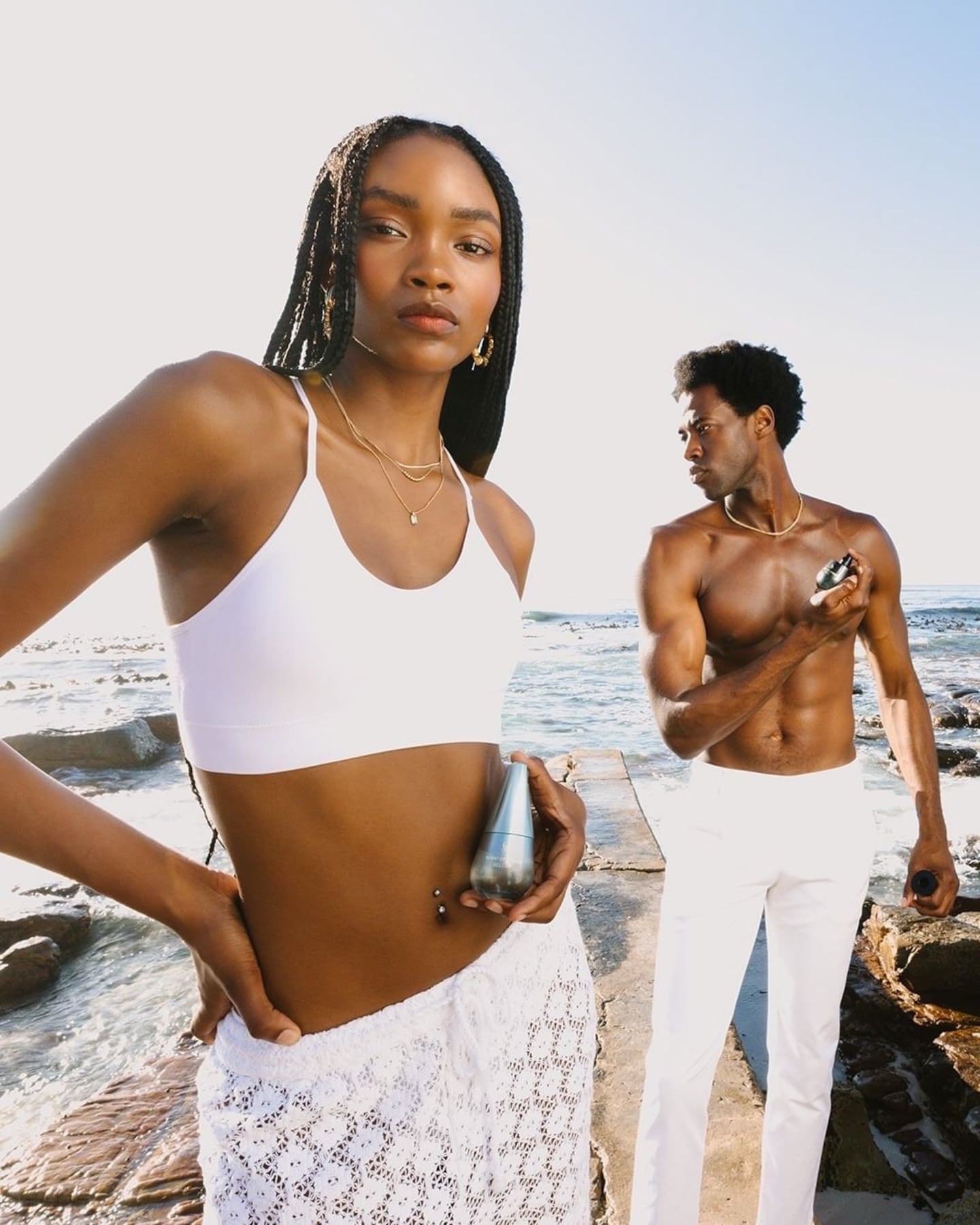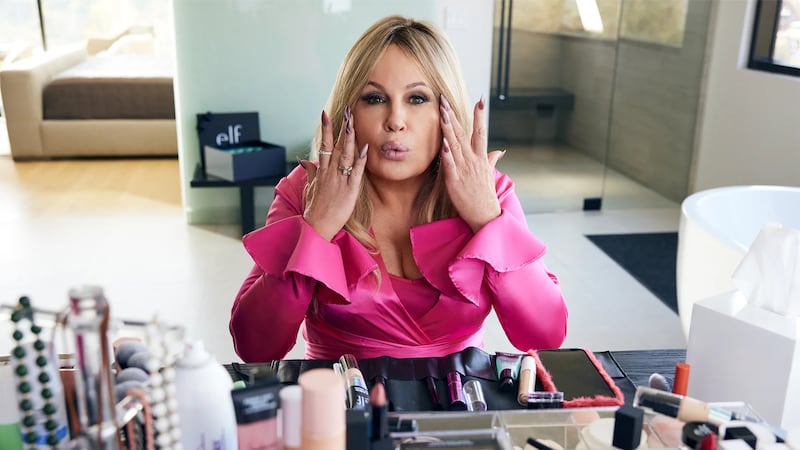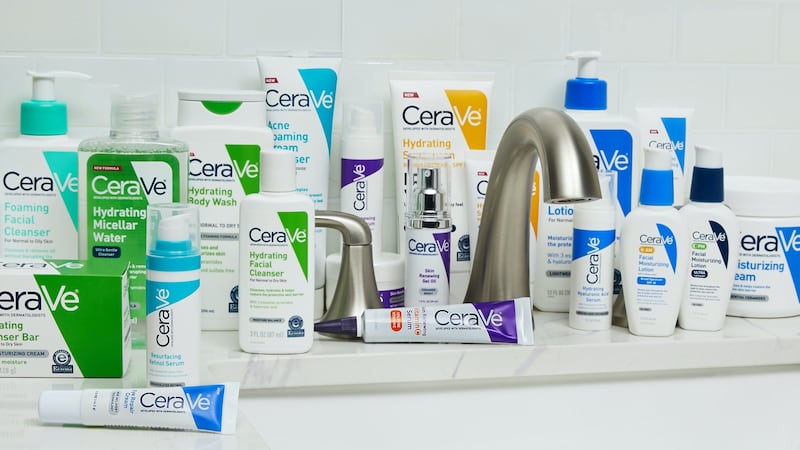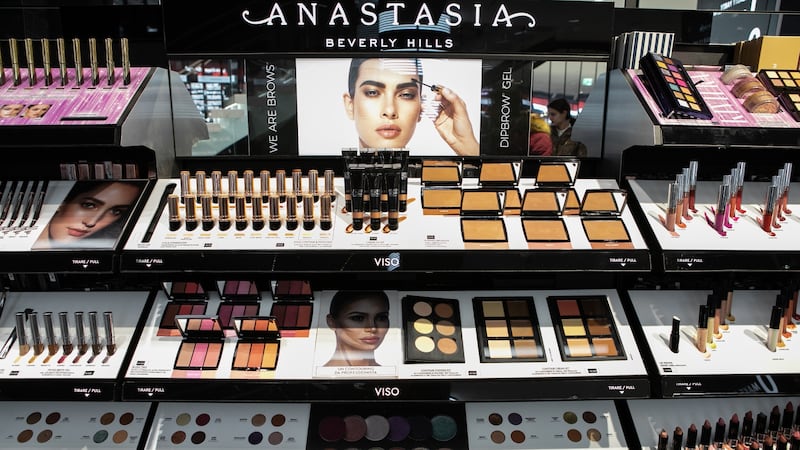Agenda-setting intelligence, analysis and advice for the global fashion community.
For centuries, Africa has been a source of inspiration and botanicals for the world’s biggest beauty companies. (Think of Byredo’s best-selling fragrance Bal d’Afrique, or Diptyque’s use of Madagascan vanilla in its scents.)
Now, the continent’s homegrown brands — including Senegalese perfume brand Réserve en Afrique, South African-born Niche Parfums and Nigeria’s Catherine Omai — are ready to step into the spotlight, using Africa’s rich reserves of ingredients to build brands with niche appeal at a premium price point.
“Africa has been key to the perfumery world for centuries. But there’s not many of us [perfumers],” said Réserve en Afrique co-founder Etienne Haddad. “We’re really trying to create something special that can resonate with consumers both on the continent and abroad.”
But while there’s no shortage of innovation, local players have yet to unlock the market’s full potential. Heavyweights such as Coty, Revlon and Puig dominate the market thanks to their extensive distribution channels, continental-wide marketing efforts and strong brand recognition. Other affluent domestic consumers prefer cult brands, creating a market for niche perfume stores dedicated to providing African consumers with access to global brands such as Le Labo and Maison Crivelli.
ADVERTISEMENT
“In Africa, international brands are still seen as a status symbol and as an aspirational purchase,” said Rubab Abdoolla, a consultant at market research firm Euromonitor International.
African brands also face limited access to suppliers and manufacturers on the continent and a competitive retail environment, making growth and scale difficult. Plus, the region lacks a known scent profile in the way the Middle East is associated with the dark and woody oud, added Abdoolla.
Despite the headwinds, local players see real opportunity. The South African fragrance market is expected to grow 7.6 percent to reach $672 million, while the Kenyan, Angolan and Nigerian markets are all expected to grow this year, reaching a collective $183 million, per Euromonitor.
To cash in, African perfumers are building the region’s scent profile, leaning on botanicals from across the continent such as Egyptian jasmine, Nigerian ginger and black pepper from Côte d’Ivoire, while also crafting nimble retail and marketing strategies to reach the growing consumer group that wants to invest in high-end beauty products in Africa.
The Smell of Success
In Africa, smelling good (or “expensive”) is a subtle indicator of social status, said Thamani Thothe, founder of Botswana-based White Label Fragrances, which incorporates African ingredients like myrrh and marula oil.
“A lot of people here spend close to $200 on just [one] bottle of fragrance,” said Thothe, describing those purchases as a monthly re-up. “We’ve found success locally because we’ve tapped into that psyche,” she added, pointing to countries within southern Africa — including South Africa, Botswana, Zimbabwe — where the growing middle class are increasingly investing in luxury fragrances.
The dissemination of trends and taste through social media has also been “a game changer”, said South Africa-based Zesipho Mcwango, founder of the fragrance discovery Instagram account The Official Perfume Plug. “Before that, our proximity to luxury and niche brands was zero.”
Despite an increased appetite for luxury fragrances, getting products into consumers hands remains difficult from nation to nation. High shipping costs, custom charges and delays make continental trade near impossible — especially for emerging brands with limited cash flow.
ADVERTISEMENT
“We should be able to trade amongst ourselves [African countries], but it’s expensive to ship from Botswana to Ghana or Botswana to Kenya; that’s been really challenging,” said Thothe. “If you’re selling a unit for $50, and shipping is $100, it doesn’t make sense.”
There are workarounds. Due to a limited number of physical fragrance stores in countries like Ghana, Côte d’Ivoire and Angola, Accra-based fine fragrance brand Scent of Africa and its founder Tanal Ghandour are betting on travel retail to help expand the brand’s footprint. Those who are catching flights in African countries could likely afford a Scent of Africa perfume (a 50ml fragrance costs $70), said Ghandour. To boot, “everything at the airport represents quality — especially in duty free next to all these international brands,” he said.
A travel retail presence also offers protection against brand dilution — contraband products are a significant challenge in the region, said Euromonitor’s Abdoolla, which she cites as a particular issue in markets such as Cameroon. For emerging brands, being stocked in trusted retail stores is key to boosting consumer confidence.
“Consumers… feel comfortable buying it [in travel retail] because they know they’re not buying a fake product,” said Ghandour.
Another option is to go global – particularly as interest in African-inspired fragrances grows. In Senegalese capital Dakar, Réserve en Afrique’s Kozhevnikov and Haddad believe the niche perfume market in Africa is small and nascent; there’s more opportunity outside its borders.
“For us the goal is to get out globally. We would definitely sell in different African countries where there is opportunity,” said Kozhevnikov, adding that the business currently sells direct-to-consumer in Europe and the US, as well as in select retailers in South Africa.
Hometown Glory
Historically, African perfume brands have not taken up much shelf space, both at home and abroad, which has hindered their growth, particularly when compared with larger brands. As Olaseinde Olusola, co-founder of Nigerian speciality boutique Seinde Signature, said: “People are not going to buy a niche perfume if they’ve never heard of it or if they’ve never experienced it.”
New retailers are surfacing to cater to the growing demand for luxury and niche perfume. International beauty brands are inking deals with well-established African retailers such as The Foschini Group, Lintons Beauty World and Edgars, meanwhile niche perfume brands are finding a new home in smaller dedicated retail stores.
ADVERTISEMENT
Skins Cosmetics, the Dutch-owned luxury boutique specialising in niche and luxury perfume, is a market leader in South Africa, having opened its first store in 2017. Now, it has six, and its portfolio has jumped from 50 to 75 international brands including cult favourites like Byredo, Maison Francis Kurkdjian and Frederic Malle – as brick-and-mortar is still the preferred shopping method in the region, said Max Priebatsch, director of ASCO, Skins Cosmetics’s parent company.
The retailer’s pre-existing relationship with niche and luxury fragrance brands was key to kickstarting momentum and securing big brands, but some brands were hesitant to make the pivot into Africa. “When we first opened Skins, some brands didn’t join. They came in later after the concept was realised,” said Priebatsch.
Building a robust and competitive fragrance market requires the participation of international brands. “These brands enjoy being adjacent to each other,” said Priebatsch.
For example, in order to stock Creed, Skins Cosmetics had to have other luxury brands including Le Labo, Diptyque and Frederic Malle in its portfolio. “These brands tend to move together in terms of the retail environment.”
Educating consumers is also key. Seinde Signature is currently running a campaign around the idea of “niche perfume,” said co-founder Olaseinde Olusola, adding that the store is investing heavily in sampling, which is already proving successful.
As a small — but growing number — of perfume fans are waking up to the local fragrance scene, they’re also becoming more open to the idea of trying new African brands.
“A lot of Nigerians prefer something that is foreign,” said Olusola. “There’s a preconceived notion that the quality wouldn’t be good, but after experiencing African perfumes, they’ll change their minds.”
Sign up to The Business of Beauty newsletter, your complimentary, must-read source for the day’s most important beauty and wellness news and analysis.




